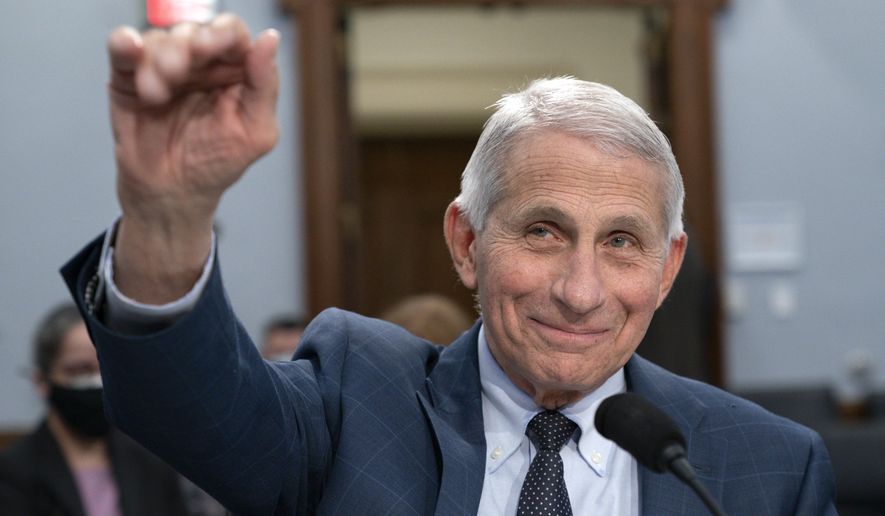OPINION:
America today is ruled principally by bureaucrats and government experts operating at the president’s direction.
For a long time, the United States has largely accepted this arrangement. Woodrow Wilson’s view that wise, apolitical and altruistic experts could govern better than the people has dominated the last 90 years or so of American governance.
But recent experience, especially the pandemic, has proved the unwisdom of Wilson’s vision.
Highly placed experts in government are no longer widely perceived as wise, apolitical or altruistic.
Many of them are seen as foolish, partisan and self-interested, just like so many others who wield power.
But unlike these others, our experts are hardly accountable for their mistakes.
You can kick a congressman or the president out of office, but you can’t do anything about Dr. Anthony Fauci.
Rule by unaccountable experts was always constitutionally dubious. After all, the Constitution says that the people are sovereign.
And sovereignty is not just the power to appoint rulers, but more importantly, to remove them. But our bureaucrats are largely immune from popular removal.
Still, our country has long tolerated this constitutionally dubious arrangement because progressives assured us (and we believed them) it would be worth it.
Experts could deliver better government, better services, better quality of life than the people could deliver to themselves through their state and federal representatives.
That lie is now in tatters.
That our expert emperors are unclothed is plain to see, but they remain, nonetheless, our unfireable rulers. Why?
Because Congress has given them its powers and does not want to take them back.
Our experts’ failures, revealed during the pandemic, have not changed that. Congress remains as unwilling as ever to take back its constitutional role.
The president, of course, is perfectly happy to keep all the power Congress has given to the agencies he controls.
Only people of incredible character willingly refuse power given to them, and people like that are in short supply these days.
There is, however, a spark of hope in the judiciary. The Supreme Court, which bears so much responsibility for allowing the other branches to replace popular rule with expert rule, seems to have seen the error of its ways.
The Supreme Court once allowed Congress to give its power away to the administrative state. And it once permitted the president to expand the powers given.
It did this because it once fully believed in Wilson’s vision. It traded popular sovereignty for the expediency of better, administrative government.
That expediency has proved dubious, however, and the high court has noticed.
Where once it deferred to experts in all things — economic policy, racial equality, sexual ethics, etc. — it now looks skeptically at experts’ judgments.
More importantly, however, it is beginning to hold Congress accountable to its constitutional role.
For example, in West Virginia v. EPA, the Supreme Court refused to allow an administrative agency to expand the powers Congress gave it.
The court also required Congress to define the powers its delegates more precisely.
West Virginia is the latest in a line of cases where the court gently pushed back on Congress’ abdication and rejected its own previous blind deference to experts.
The court has not forbidden Congress from giving its powers to the administrative state.
It has, however, put both the legislative and executive branches on notice that it no longer buys into Wilson’s vision.
Will these gentle nudges solve the problem of administrative rule? Probably not.
Only Congress can solve the problem it created, and gentle nudges are probably not enough to goad that lazy body to motion. A sharper prod is needed.
The court might provide that by dealing delegation a strong blow.
Eliminating an unconstitutionally constituted agency or reinvigorating the constitutional principle that Congress cannot give its job to the administrative state might do the trick.
It’s not clear that the Supreme Court is willing to do any of that. But it’s probably the best chance we have of reclaiming popular sovereignty.
• GianCarlo Canaparo is a senior legal fellow in The Heritage Foundation’s Meese Center for Legal and Judicial Studies.




Please read our comment policy before commenting.